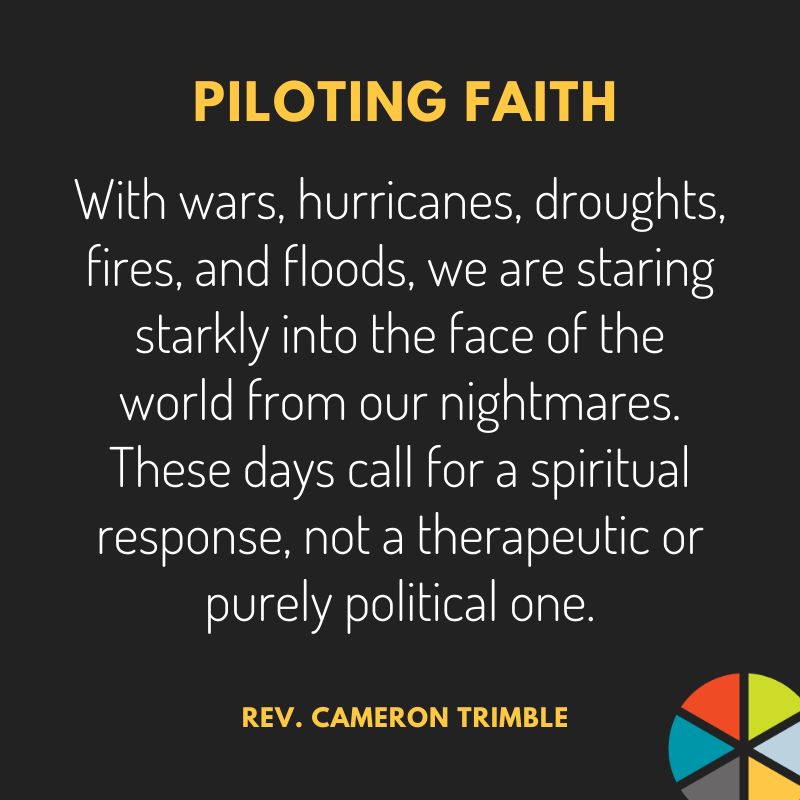It seems like we’ve lived five years in the last seven days. Between the trauma and heartbreak we are witnessing in Afghanistan and the fear and foreboding we have lived through with hurricanes, droughts, fires, and floods, we are staring starkly into the face of the world from our nightmares.
Lately, I’ve been reading and meditating on “dark night of the soul” experiences. Today, when most of us use that phrase, we casually refer to a challenging moment or a season of sadness. The term “dark night of the soul” comes from the Spanish mystic St. John of the Cross (1541-1597). He writes about the experience as one of profound spiritual transformation marked by a time of purification and clarification of one’s senses and then learning to live with radical faith and trust. When you experience a dark night of the soul, you are never the same.
I do have the sense that we are all living through a collective “dark night” experience. By this, I mean that we are living in unsettling days that offer no obvious way “out.” We face challenges that do not have easy solutions, leaving us to push past the edge of what is reliable and familiar. These days demand a new imagination from us, one that questions how life works (and doesn’t work). Dark nights call for a spiritual response, not a therapeutic or purely political one.
Author and psychotherapist Thomas Moore explains in his book Dark Nights of the Soul: A Guide to Finding Your Way Through Life’s Ordeals, “The dark night of the soul provides a rest from the hyperactivity of the good times and the strenuous attempts to understand yourself and to get it all right. During the dark night there is no choice but to surrender control, give into unknowing, and stop and listen to whatever signals of wisdom might come along. It is a time of enforced retreat and perhaps unwilling withdrawal. The dark night is more than a learning experience; it’s a profound initiation into a realm that nothing in the culture, so preoccupied with external concerns and material success, prepares you for.”
From this space, the basic question is not “why has this happened” but once tragedy occurs, “who are we now because of it?”
It is there that I think God dwells. It’s a fair question to ask, “where is God” in this mess of a world we have created. Who are we now? My answer is grounded in two theological understandings. First, I believe that God does not cause bad things to happen. God is not a punitive parent who makes us suffer to teach us lessons. We live in a world of free will, and a condition for that freedom includes suffering.
Secondly, I understand that God is with us through it all. When we grieve, God grieves all while hoping for our healing and wholeness. In our “dark nights,” I trust God to be bringing resurrection from the crucifying experiences of life. Most often, that transformation comes through the deep, caring love we show one another.
If dark night seasons are in service to profound transformation, then I pray we are seeing the transformation of a world lost to violence, power and greed to one shaped more by compassion and love.
During such times I am reminded again of how much we need each other. Life is not a “do it yourself” project. I am glad that God has created us not for isolation, but for community. When we care about one another and reach out to one another, then we can make it through.
We are in this together,
Cameron
